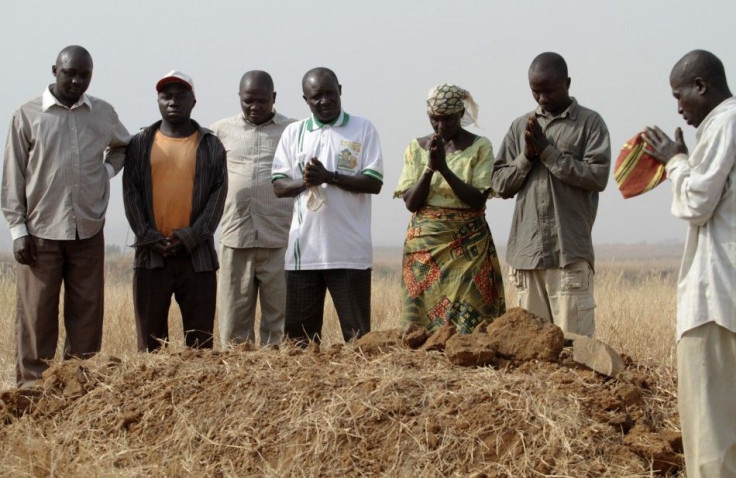Mass Shootings In US Should Highlight Violence Worldwide

The recent slaughters in an Aurora, Colo., movie theater and a Sikh temple in Oak Creek, Wis., have no doubt heightened awareness of the potential for individuals to carry out extreme and terrible violence in America as the stories are cycled through the media centrifuge, but it is easy to forget that such violence is an everyday occurrence in many parts of the world.
This is not to downplay the tragedy of what happened to those Americans -- to the friends, lovers and families that had hoped to enjoy a summer blockbuster, and the group of devout worshippers sitting down to celebrate with a religious meal -- but it should provide some perspective on the daily proliferation of violence throughout dozens of countries that, frankly, just don't seem to warrant much attention.
On Tuesday, at least 16 lives were taken when gunmen stormed into a church in central Nigeria and opened fire upon the congregation with AK-47 assault rifles.
Let us, for a moment, give this incident the same consideration it would have received had it happened in America, or in some other industrialized nation. Let us not dismiss this as another violent act "typical" of the developing world, where poverty, political instability or religious extremism -- deeply complex and interconnected issues -- become glossed over and oversimplified explanations for why people die terrible deaths.
The victims were evangelical Christians, members of the Deeper Life Church in a quiet suburb of Okene, a city located in Kogi state 155 miles southwest of the capital Abuja.
The attackers, who remain at large, were identified as three men and nothing more. This lone fact makes it significantly more difficult to approach the story with the level of detail that is tirelessly excavated from higher-profile mass shootings.
At the same time, it is not an isolated incident, which allows it to be viewed within the context of a pattern of violence.
There have been a series of attacks on churches in Nigeria in recent years, for many of which the militant Islamist sect Boko Haram has claimed responsibility.
Boko Haram, however, has yet to claim responsibility for the attack in Okene.
Regardless, past attacks have not simply been a matter of violence motivated by religious extremism.
There are a host of other factors that have led to the rise of Boko Haram, including issues of widespread economic disparities, political marginalization of Muslims and deep-seated socio-ethnic tensions between Nigeria's sedentary farming and nomadic cattle cultures, all of which cannot be removed from beneath the shadow of British colonialism.
When incidents of mass murder occur, it is not enough to find a formulaic explanation, but to realize that it is indicative of deeper multifaceted problems that require an sustained commitment to understand.
Just as the culture critics, social scientists and political pundits pore over the massacres in Colorado and Wisconsin, so should others examine the massacres in Nigeria and in other countries too often overlooked by mass media.
Because in the end, the loss of human life is no less tragic just because it happened in a place where it happens every day. If anything, it makes it more tragic that such occurrences have come to be regarded as normal.
© Copyright IBTimes 2024. All rights reserved.





















